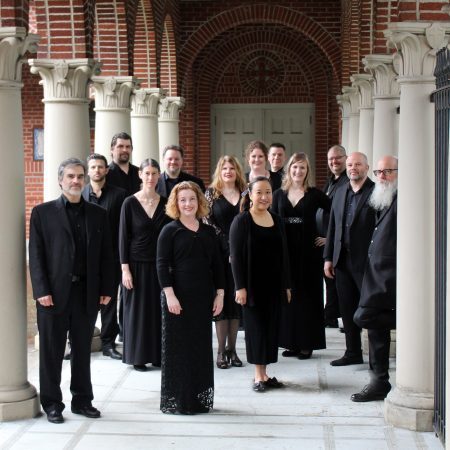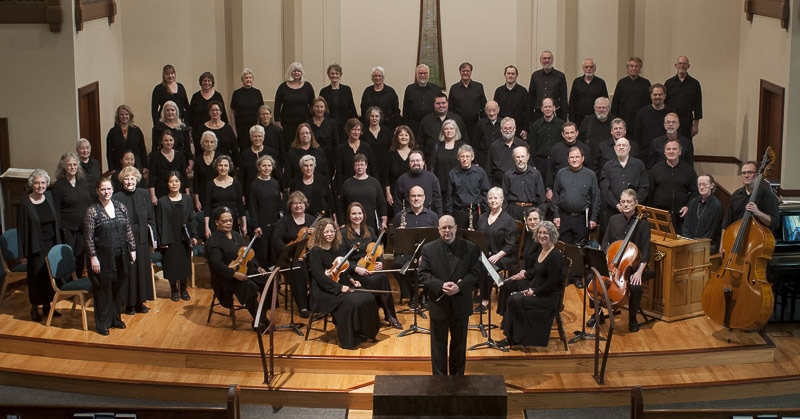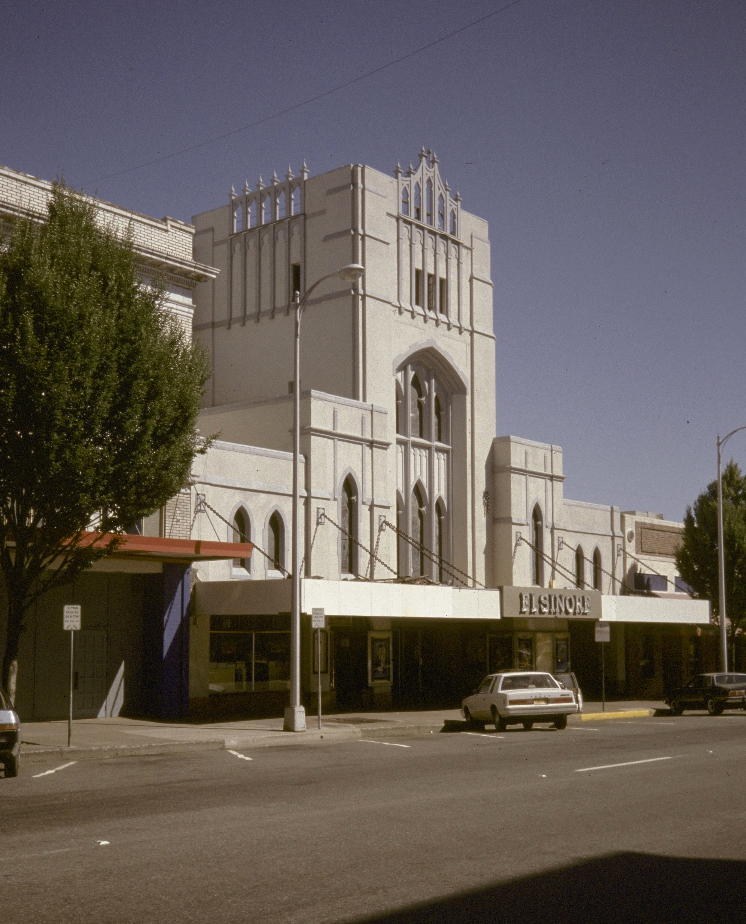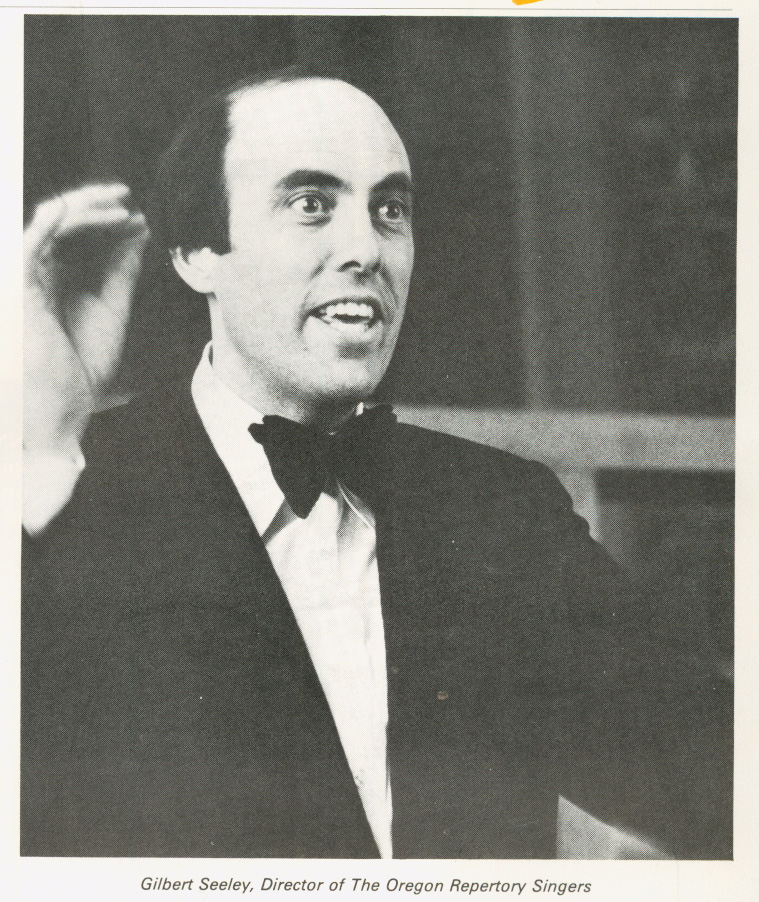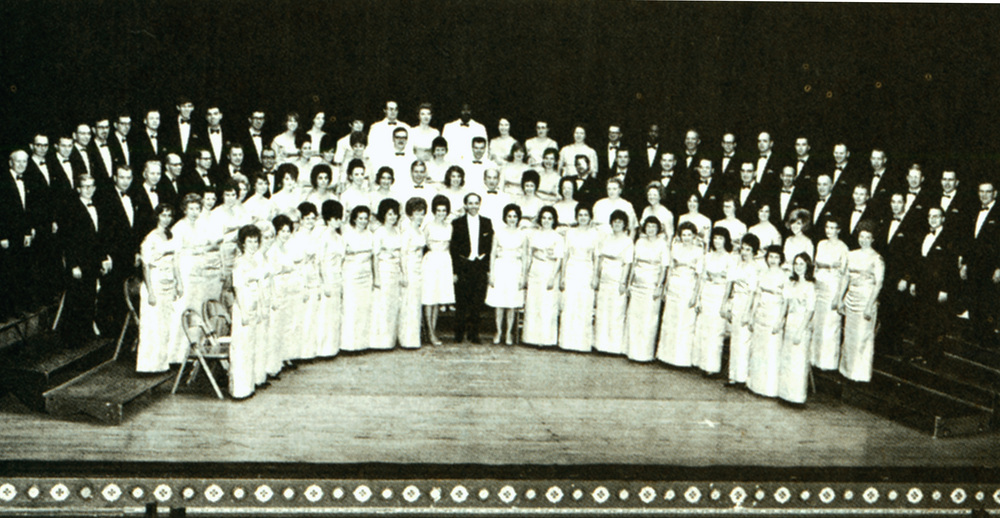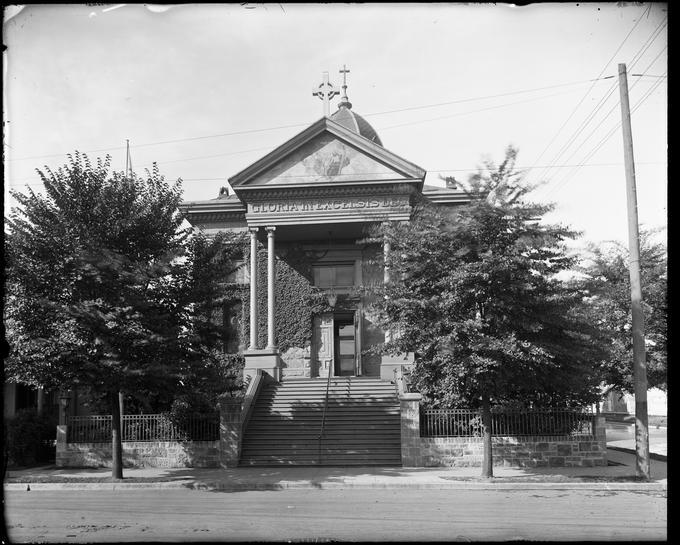Cappella Romana is a Portland-based elite choral ensemble that performs and interprets early music from Eastern and Western Christian cultures. The nonprofit group and its founder, Alexander Lingas, have performed choral literature since 1991, making a significant contribution to the Pacific Northwest choral music scene. Through its critically acclaimed recordings and touring concerts, Capella Romana has gained an international reputation as one of the top nonliturgical choirs in this music niche.
Cappella Romana, translated as Roman Chapel, is best known for performing and recording medieval Byzantine chant and sacred music of the Eastern Orthodox Church. The artists of Cappella Romana, who audition for the choir and are paid professionals, must possess excellent musical and vocal skill. They are coached in performance practices (especially ornamentation, improvisation, nontempered tunings, and vocal timbre) and in pre-modern and non-Western musical notations, and they sing in several languages, including Greek, Church Slavonic, and Latin.
Lingas, now the artistic director for Cappella Romana, received a bachelor’s degree in music and Russian from Portland State University and a Ph.D. in historical musicology from the University of British Columbia. Considered one of the world’s leading scholars on the music of the Orthodox Church, Lingas is a Reader in Music at City University of London and a Fellow of the University of Oxford’s European Humanities Research Centre. He has unearthed many of the programmed works from primary sources.
Lingas first conceived of the group in San Francisco, and the ensemble performed its first two concerts in 1991, in Portland and San Francisco. Since basing the organization in Portland, the small group of musicians expanded to include singers from throughout the nation, although most are from the American West. The singers required for each concert are determined by the vocal needs indicated in the music. Cappella Romana regularly invites guest artists and directors or soloists to perform, including Associate Music Director John Michael Boyer; British composer and conductor Ivan Moody, whose setting of Akáthistos Hymn to the Virgin Mary has been recorded by Cappella Romana; and Glenn Miller, a basso profundo, who has appeared in the Vespers of Sergei Rachmaninoff.
Cappella Romana records and presents concerts of the music of contemporary Orthodox and secular composers, including Europeans Arvo Pärt and John Tavener, and often includes the music of North American artists such as Greek Canadian Christos Hatzis, Tikey Zes, and Peter Michaelides. Lingas discovered Michaelides's unpublished complete Greek manuscript, The Divine Liturgy of St. John Chrysostom, in a church attic in Portland, an example of the “lost” sounds of Christian Orthodox music that Cappella Romana performs.
Cappella Romana produces concerts in Portland, Seattle, and San Francisco. The ensemble appeared at the Smithsonian Institution in Washington, D.C., the Getty Museum in Los Angeles, and the Touhill Performance Center in St. Louis. It has performed internationally in London; Rome; Belfast and Limerick, Ireland; Palermo, Italy; and at the Early Music Festival in Utrecht, The Netherlands.
Mark Powell, executive director of Cappella Romana since 2002, and the board have elevated the choir’s brand in the Pacific Northwest by sponsoring and collaborating with other choral groups and artists, including the Byrd Ensemble and the Tudor Choir, both from Seattle, and the Tallis Scholars. The ensemble’s concert home in Portland is St. Mary’s Cathedral.
-
![]()
Capella Romana, publicity photo.
Courtesy Capella Romana
Related Entries
-
![Bach Cantata Choir]()
Bach Cantata Choir
Few choirs dedicate themselves to a specific performance achievement go…
-
![Festival Chorale Oregon]()
Festival Chorale Oregon
Formed in 1979, Festival Chorale Oregon began in Stayton, Oregon, as an…
-
![Oregon Repertory Singers]()
Oregon Repertory Singers
Since 1974, no other choral organization has brought more recognition o…
-
![Portland Symphonic Choir]()
Portland Symphonic Choir
Struck by Portland's lack of a civic chorus, C. Robert Zimmerman decide…
-
![William Byrd Festival]()
William Byrd Festival
The William Byrd Festival began as the brainchild of two men: Dean Appl…
Map This on the Oregon History WayFinder
The Oregon History Wayfinder is an interactive map that identifies significant places, people, and events in Oregon history.
Further Reading
Eschner, Kat. "You Can Hear Hagia Sophia's Sublime Acoustics Without a Trip to Istanbul." Smithsonian Magazine, December 27, 2016. https://www.smithsonianmag.com/smart-news/you-can-hear-hagia-sophias-sublime-acoustics-without-trip-istanbul-180961563/
Serinus, Jason Victor. "Cappella Romana: Time-Travel to Constantinople." San Francisco Classical Voice, February 1, 2013. https://www.sfcv.org/reviews/stanford-live/cappella-romana-time-travel-to-constantinople

